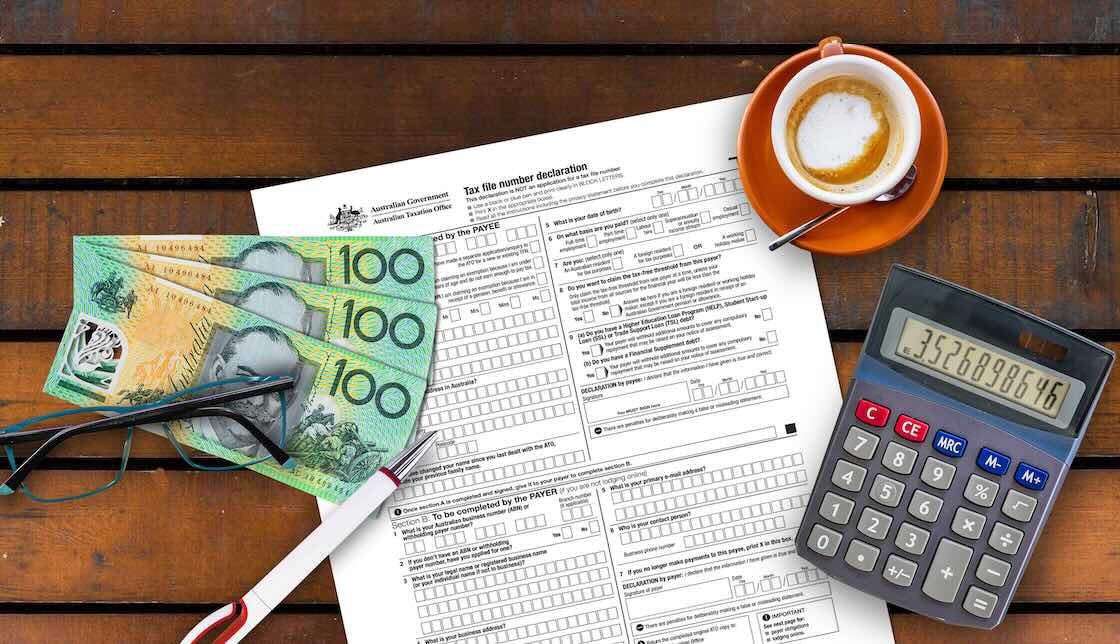As a disability support worker, you have access to a range of disability support worker tax deductions that can reduce your taxable income and maximise your tax refund.
Tax deductions for support workers can include uniforms and work-related travel expenses but there are many other considerations.
Knowing what you can claim is essential to ensure you’re not leaving any money on the table. That is why we are here to simplify tax time for you, making the process straightforward and stress-free.
What Can Disability Support Workers Claim on Tax?
As a disability support worker, you can claim the following tax deductions:
- Uniforms and Protective Clothing: Costs for required uniforms with logos and protective gear like non-slip shoes and gloves.
- Laundry Expenses: Expenses for washing and maintaining your work clothes.
- Vehicle and Travel Expenses: Costs when using your car for work-related travel, such as visiting clients (not including travel from home to work).
- Self-Education Expenses: Costs for courses and training directly related to your current job.
- Tools and Equipment: Purchase and maintenance of work-related items like medical tools or electronic devices.
- Union and Professional Fees: Membership fees for unions or associations related to your profession.
- Phone and Internet Expenses: Work-related portion of your personal phone and internet bills used for work communication.
- Home Office Expenses: If you perform some work duties from home, you can claim a portion of your home office costs.
- Work-Related Vaccinations: Costs for vaccinations required by your employer.
- Seminars and Conferences: Expenses for attending industry-related events.
- Income Protection Insurance: Premiums for insurance policies that protect your income.
Uniforms and Protective Clothing
Do you wear specific clothing or protective gear for your job? You can claim expenses related to:
- Compulsory uniforms: Clothing that is distinctive to your employer, such as shirts with a company logo.
- Protective clothing: Items like non-slip shoes, gloves, aprons, or any attire that safeguards you from health hazards.
- Maintenance and repairs: Costs for repairing or altering your work clothes.
Important: Ordinary clothing (like plain trousers or shirts) that could be worn outside of work isn’t deductible, even if your employer requires you to wear them.
Laundry and Maintenance Expenses
Keeping your work attire clean is part of the job. You can claim:
- Laundry costs: Expenses for washing, drying, and ironing your work clothes at home.
- Dry-cleaning bills: If your uniform requires professional cleaning.
Tip: If your laundry claim is under $150 and your total work-related expenses are under $300, you don’t need to provide receipts. However, it’s wise to keep a record of how you calculated your claim.
Vehicle and Travel Expenses
Using your own vehicle and travelling for work? You might be able to claim:
- Transporting clients: If you’re required to drive clients to appointments, activities, or services.
- Travel between multiple workplaces: Visiting different clients or facilities in the same day.
- Home visits: Travelling to clients’ homes if your role involves in-home support.
- Travel to alternative workplaces: Attending meetings, training sessions, or seminars.
- Overnight travel: Accommodation, meals, and incidental expenses when staying away from home for work.
You can choose between:
- Cents per kilometre method: Claim up to 5,000 business kilometres per vehicle at a set rate per kilometre.
- Logbook method: Claim the work-related percentage of your actual car expenses, including fuel, maintenance, and depreciation.
Note: Keep a detailed record of your work-related travel to substantiate your claims.
Self-Education and Training Expenses
Improving your skills not only benefits your career but can also reduce your tax. You can claim expenses if the course:
- Maintains or improves skills required in your current job.
- Is likely to increase your income from your current employment.
Deductible expenses include:
- Course fees: Excluding any government-funded fees or loans like HECS-HELP repayments.
- Textbooks and stationery: Required reading materials and supplies.
- Travel expenses: Getting to and from your place of education.
Example: If you’re undertaking a course in disability care or specialised communication techniques, related expenses may be deductible.
Tools and Equipment
Purchasing tools and equipment necessary for your job can be expensive. You can claim:
- Immediate deduction: For items costing $300 or less.
- Depreciation over time: For items over $300, claim a deduction for the decline in value over the item’s effective life.
This includes:
- Medical aids: Blood pressure monitors, therapy equipment, or mobility aids you personally purchase.
- Electronic devices: A portion of the cost for laptops, tablets, or mobile phones used for work purposes.
- Maintenance costs: Repairs or servicing of your tools and equipment.
Union and Professional Association Fees
Being part of a union or professional body can offer support and resources. You can claim:
- Annual membership fees: To unions or associations directly related to your job.
Example: If you’re a member of the Health Services Union (HSU), your membership fees are deductible.
Telephone and Internet Expenses
If you use your personal phone or internet for work-related communication, you can claim the work-related portion of:
- Phone calls and texts: To clients, colleagues, or your employer.
- Data usage: If you access work emails, online portals, or client management systems.
How to calculate:
- Itemised bills: Identify work-related calls and calculate the percentage.
- Reasonable estimate: Keep a diary over a representative four-week period to determine your work usage.
Tip: Only claim the portion that relates directly to your work.
Home Office Expenses
Even if you primarily work on-site or in clients’ homes, you might perform some duties from your own home. You can claim:
- Running expenses: A portion of your electricity, heating, cooling, and lighting costs.
- Office equipment: Depreciation of items like desks, chairs, and computers used for work tasks such as reporting or scheduling.
Note: Keep a record of the hours you work from home and the expenses incurred to substantiate your claim.
Vaccinations and Medical Expenses
Working closely with clients may require you to have certain vaccinations. You can claim:
- Work-related vaccinations: Such as influenza, hepatitis, or other immunisations required by your employer.
Exclusions: General medical or dental expenses not directly related to your work are not deductible.
Seminars and Conferences
Staying updated with industry developments is beneficial. You can claim:
- Registration fees: For seminars, workshops, or conferences related to disability support.
- Travel and accommodation: If you need to travel and stay overnight for the event.
Example: Attending a conference on disability care best practices can be a deductible expense.
Income Protection Insurance
Protecting your income in case of illness or injury is a prudent step. You can claim:
- Premiums paid: For insurance policies that protect your income.
Note: This doesn’t include life insurance, trauma insurance, or policies paid through your superannuation.
What Disability Support Workers Generally Can’t Claim
To avoid any issues with the ATO, be aware of expenses that aren’t deductible:
- Everyday clothes: Even if your employer requires you to wear them (like plain pants and shirts without logos).
- Initial licence fees: Costs for obtaining a licence or certificate for the first time.
- Commuting costs: Travel from home to your regular place of work and back.
- Childcare expenses: Costs for minding your children while you’re at work.
- Fines and penalties: Such as parking or speeding fines incurred during work.
Important: Misclaiming expenses can lead to penalties, so it’s crucial to understand what’s allowable.
Tips to Maximise Your Tax Return
We want to help you get the most out of your tax return. Here are some handy tips:
- Keep detailed records: Store all receipts, invoices, and statements throughout the year.
- Use technology: Apps and software can help track expenses and categorise them.
- Separate expenses: Only claim the portion of expenses that relate to your work.
- Stay informed: Tax laws can change, so keep up-to-date or consult a professional.
Estimate Your Tax Refund
We’re Here to Help!
At My Tax Refund Today, we’re dedicated to making tax time simple and stress-free for disability support workers like you. Our experienced team understands the specifics of disability support worker tax deductions and can guide you through the process.
- Personalised advice: We’ll assess your individual situation to maximise your refund.
- Quick and convenient: Our online services mean you can get your tax refund processed without leaving home.
- Ongoing support: Have questions? We’re here to help year-round, not just at tax time.
Working out the disability support worker tax deductions doesn’t have to be complicated. With the right information and support, you can ensure you’re not missing out on any entitlements. So why not let us help you get the refund you deserve? After all, you work hard supporting others—let us support you.
Contact our friendly team to assist you in making the most of your tax deductions. We’re just a call or click away!





